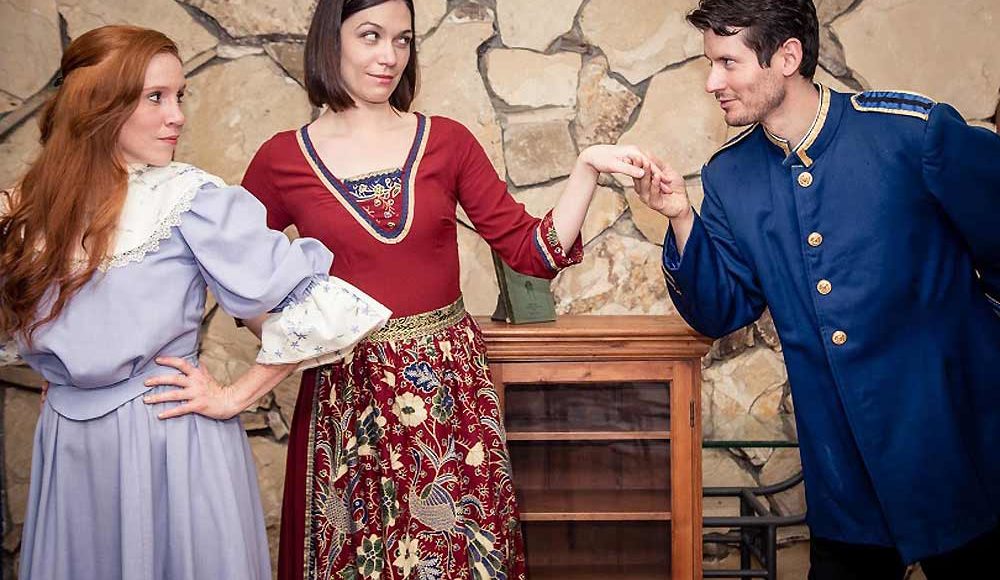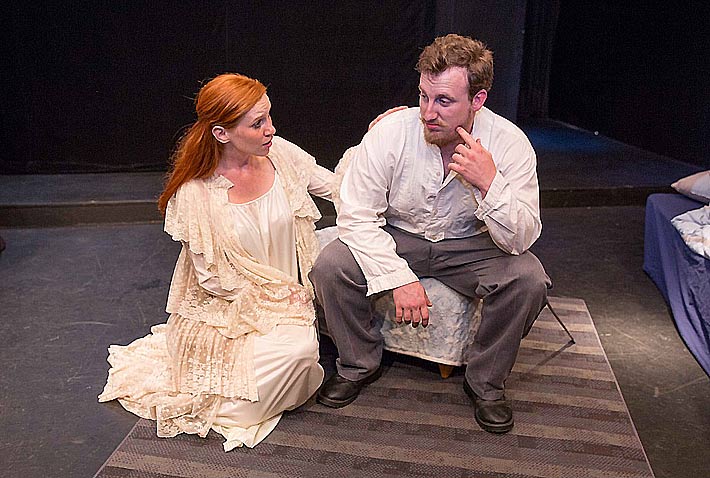Arms and the Man is one of George Bernard Shaw’s most appealing plays; which is what he intended it to be.
Shaw’s first play, Widowers’ House, produced in 1892, was an assault on the practices of London slum lords. His next play, Mrs. Warren’s Profession was completed in 1893, had prostitution as its central issue. Both plays shocked the Victorian theatre goers.
Shaw himself referred to both works as “unpleasant.”
Well now that he had their attention, Shaw decided it was time for more “pleasant” fare, resulting in the lighthearted Arms and the Man produced in 1894.
The show’s action is set at the conclusion of the 1885 Serbo-Bulgarian War and targets on the absurdities of starry-eyed erroneous romance and the sham of quixotic patriotism.
For Shaw, the point is surprisingly straightforward; Raina, a young Bulgarian woman of some social standing is alone in her bedroom on the aftermath of a great battle, in which her intended, Sergius, lead the cavalry charge responsible for breaking the Serbian line. As she indulgences in throes of romantic reveries, she is startled by Bluntschli, a Swiss mercenary in the Serbian army, who climbs over her balcony to escape an unpleasant death at the hands of the pursuing Bulgarians. While she hides him, they pass the night sharing a tin of chocolates and conversation in which Bluntschli challenges her idealistic delusions of warfare by assuring her that, “Nine soldiers out of ten are born fools.” Once the streets are safe, Raina enlists her mother Catherine’s aid, and together they help Bluntschli sneak off into the night disguised in an old overcoat of her father’s.
So the war ends, and both Sergius and Raina’s father Major Petkoff return to their manor. However, much to Raina and her mother’s consternation, Bluntschli reappears in order to – well return the coat.
George Orwell, who was generally critical of Shaw’s writing, thought Arms and the Man his best work, pointing out that the concerns of Widowers’ House and Mrs. Warren’s Profession are seen as passé by modern audiences, but that the idiocy of war is fresh in any era.
Over the decades, the show has enjoyed many revivals, in 1944 Ralph Richardson played Bluntschli opposite Laurence Olivier’s high camp rendering of Sergius.
And in 1953, Sergius provided Marlon Brando with the final stage appearance of his career.
The L.A. Troupe, Theatre-In-Education production at The Missing Piece Theatre lacks the elegant costumes and extensive sets which are usually the hallmark of this period piece.
But their deficiency of budget is nicely offset by a wealth of ambition.
Lindsay McGee is delightfully fetching as the flighty Raina.
Constance Dalton-Pawle and Sean Hilferty as her somewhat befuddled parents provide solid performances and capture the tempo of Shaw’s humor to great effect. Veronica Wylie as the soubrette and aspiring maid Louka manages to convey the scheming twinkle in her eye while adding a lovely presence on stage. Jo Crandall as pragmatic Bluntschli deftly treads that thin line between levelheaded realist and smitten swain with amusing aplomb.
Patricia Wylie directs with a firm hand that assures neither the production nor her cast succumb to the pitfalls that can undo funded-strapped mountings.
You will not find the lavishness usually expected in the staging of a Shaw play, but this production does put a high shine on the wit and wisdom of the playwright.
♦ ♦ ♦
Final weekend for ARMS AND THE MAN
Friday and Saturday Nights at 8:00 p.m. Now thru October 3
The Missing Piece Theatre
2811 W. Magnolia Blvd.
Burbank, CA 91505
Phone for tickets and reservations: 818-768-9864
(pictured above: Lindsay McGee, Veronica Wylie and Ricardo Navas)






